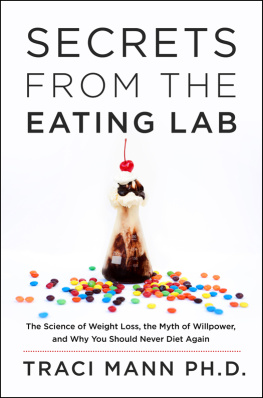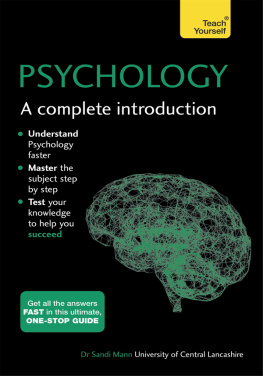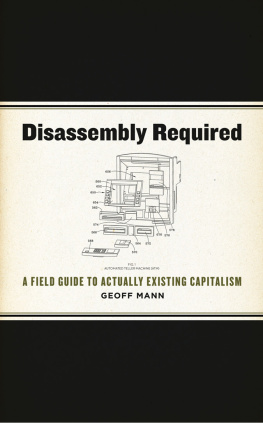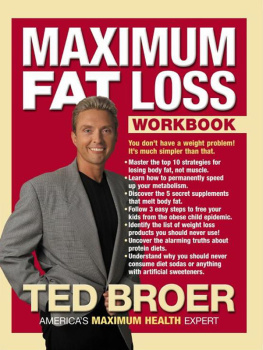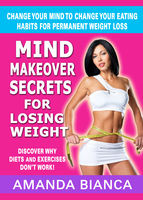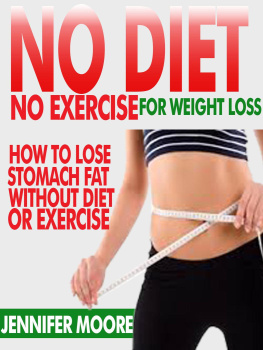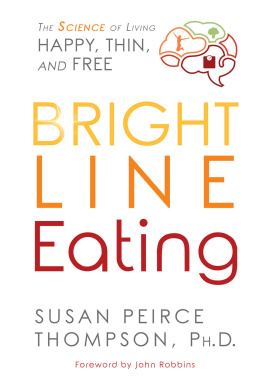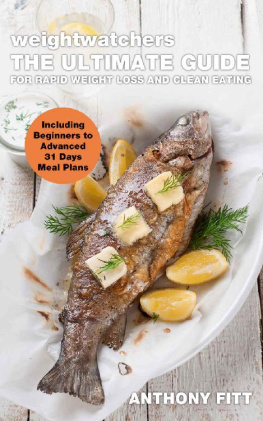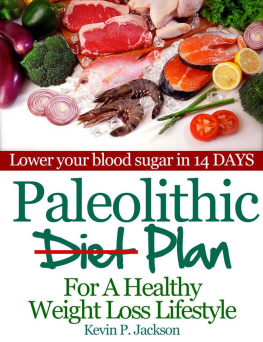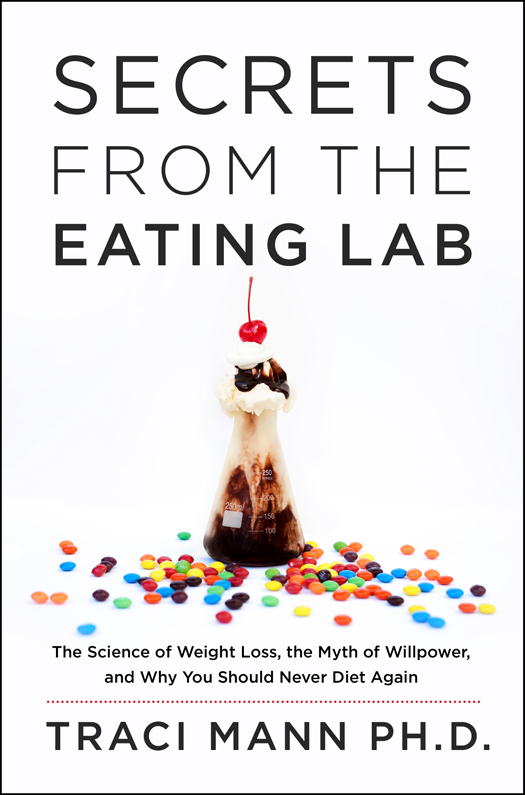In memory of my mother, Jacklyn Rosen Mann, who always wanted me to write a book.
Not this book. But some book.
And for my husband, Stephen Engel, for making it possible.
CONTENTS
Guide
You study self-control? You should study me.
I have great self-control.
NOBODY, EVER
T here is no sign on the door of the Health and Eating Lab at the University of Minnesota. Thats my lab, and if I want to learn about peoples eating habits, I cant let on that I am studyingor even noticingwhat people are eating. It would make them self-conscious and stop them from eating the way they normally do. Instead, my students and I tell our research participants that we are studying other things entirely, such as their memory, or their moods, or how they communicate with their friends. But being the hospitable people we are, we just happen to offer them some snacks while we study them. They have no idea that its what they do with those snacks that were really studying.
For more than twenty years, I have been doing research on eating, both with sneaky studies in my eating lab on campus, and in that other eating lab known as the real world, where I have studied dieters going about their normal daily routines, kids eating in school cafeterias, visitors to the annual feeding frenzy that is the Minnesota State Fair, and even astronauts on the International Space Station. Much to my surprise, Ive learned that nearly everything I thought was true about eating was false, including the three pillars of the commercial diet industry: that diets work, that dieting is good for you, and that obesity is deadly. The truth is that diets do not work and may be bad for you, and obesity is not going to kill you. I also learned that despite what most people assume, a lack of self-control is not why people become fat and harnessing willpower is not the way to become thin.
Along the way Ive also learned that many people have a vested interest in all of us believing those things are true. The obesity research community, in particular, is not delighted that my students and I dare to question their three sacred cows. Ive had a well-known diet researcher publicly accuse my young graduate student of doing a disservice to the field by suggesting that diets dont lead to long-term weight loss. Ive gotten such vitriolic reviews of manuscripts that journal editors have called me before sending the reviews to prepare me for what I was about to read. Ive had journal editors unable to find scholars willing to provide reviews of my work (even negative reviews) out of fear of getting involved in a controversy. And Ive received lots of hostile and decidedly nonscholarly feedback when Ive spoken up about these things in the media. Some people discount my research by suggesting I must be a bitter fat person (as if fat people cannot be scientists). One online commenter said I was just looking for an excuse to continue stuffing myself like a Thanksgiving turkey.
Im not obese, but I am a science nerd, obsessed with research methods and data, and the results of my studies dont lie (or have anything to do with what I weigh). I cant ignore them and I do not want to, because my research points the way to living a healthy life without suggesting that dieting is the answer. And that way to living a healthier life is what Ill share with you in this book.
In Part I, Ill share the research that proves diets dont lead to long-term weight loss and explain why this is so. If you lost a lot of weight and then gained it back, it is not because you lack self-control. In fact, I suspect you used more self-control than the people who accuse you of not having any. But it doesnt matter either way. Self-control is not the problem, and harnessing it is not the solution.
In Part II, I will make the case that diets are neither harmless nor necessary for optimal health, and that most people simply should not go on restrictive diets. My argument is based on the scientific criteria doctors use when they decide whether to recommend treatments (such as drugs) to patients for other conditions: Does the treatment work? Is it safe? Does it have side effects? For some reason, people rarely ask these questions before urging everyone to diet, but my students and I asked them, and the answers are clear: no, not necessarily, yes.
I understand that we all have an image in our mind about what we want to weigh. The problem is that for many of us, that image is outside of our biologically set weight range. It is possible to maintain a weight outside that rangea small minority of dieters doesbut to do so, you would have to make weight maintenance the central focus of your life, above all others, including your relationships with your family and friends, your work, and your emotional well-being. It would be a life of agonizing self-denial, and for what purpose?
Instead, I suggest we aim to live at the low end of our set weight range, which is our leanest livable weight. At that weight you can be happy and healthy, and you can maintain it without making it your lifes work. In Part III we will look at twelve scientifically supported strategies for painlessly getting to that weight and staying there. These strategies dont involve calorie restriction or require willpower, because relying on willpower is foolhardy, and this is not a diet. Remember, I run an eating lab, not a dieting lab.
You wont find this set of strategies elsewhere, because most of them are based on the research conducted in my lab over the last two decades. Not only will the results of this research surprise you, but I suspect the methods we use in these studies will as well. A rule of thumb in my lab is that if there is a fun way to do a study and a boring way to do a study, we go with the fun way. And as weve learned, theres always a fun way. But rest assured, the methodology we use is rigorous. In fact, the goofier the methods, the more rigorous the study needs to be to get published in leading academic journals, as these studies are.
Finally, once you are effortlessly maintaining your leanest livable weight, in Part IV Ill urge you to forget about the numbers on the scale and get on with your life. That means you need to forget about other peoples weight, too. Rebel against our weight-obsessed culture by fighting weight stigma, and shift the focus to your health and well-being instead of your weight. Ill introduce you to the reasonableyet oddly unnoticednotion that doing healthy things is healthy, whether or not they make you model-thin. Lets get started.

D iets dont work. There. I said it. Maybe thats not what you wanted me to say, but Im here to tell you the truth, according to science, without sugarcoating it. Like most simple-sounding scientific points, of course, it is more complicated than it seems. The reason for the complexity comes from the word work. What you mean when you think of a diet working is not the same as what, say, the CEO of a diet company or an obesity researcher means.
I suspect that for you, a diet works if you lose a lot of weight and keep it off. If thats the case, I can tell you definitively: diets dont work. The diet company CEO might define works a little differently: for him or her, a diet may work if people lose any weight at all for any length of time. And for obesity researchers, a diet might work if test subjects lose slightly more weight than people who are not dieting. CEOs and obesity researchers say diets work because people do lose weightand more weight than non-dietersduring the early months of most diets. Since the 1940s, hundreds of studies have shown that dieters lose an average of five to fifteen pounds over the first four to six months on a diet.

